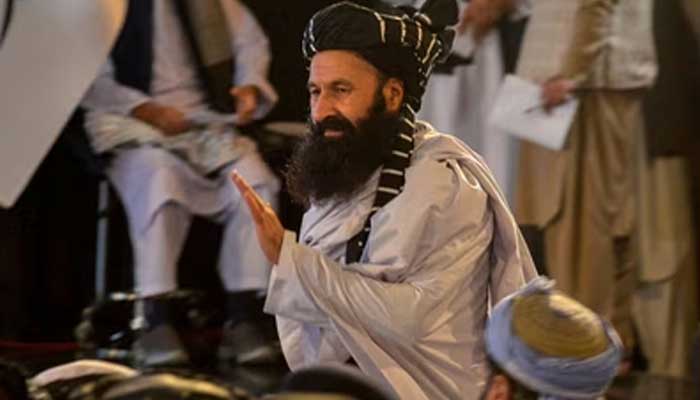
ISLAMABAD: The assassination of Afghanistan’s acting minister for refugees, Khalil Haqqani, in Kabul is bad news for the Afghan Taliban, but a particularly grim development for Pakistan.
According to interviews with Afghan and Pakistani officials, News learned that Haqqani’s death deprived Pakistan of a significant voice in a seemingly hostile Taliban government.
Since the Soviet war, Khalil has become a legendary figure in Afghanistan, much like his older brother Jalaluddin Haqqani. During the US-led war on terrorism, Khalil was considered a militant opponent by the United States, as evidenced by the bounty placed on his head.
The Afghan Taliban took control of Kabul on August 15, 2021, and this correspondent met Khalil Haqqani on August 21 for a memorable interview in the Afghan capital.
The United States had announced a bounty on him because after 9/11, Khalil Haqqani facilitated attacks against the United States. Like his older brother, he had turned against America. Leadership of the influential Haqqani family appeared to have passed to Siraj Haqqani alias Khalifa, the current Afghan Interior Minister, after Jalaluddin’s death. However, behind the scenes, Khalil managed affairs with discretion.
Khalil had previously been accused of organizing several suicide attacks, an ironic move given that he was ultimately the victim of a suicide bomber in the mosque adjoining his refugee ministry in Kabul.
According to reports, the attacker entered the secure compound in the guise of a poor man with a bandage on his hand that concealed explosives. Apparently, the suicide bomber entered the high-security compound telling security he wanted to see Khalil to deliver a request for help.
Despite the 2020 peace deal, the United States maintained a $5 million bounty on Khalil. An Afghan official familiar with the details of the incident said ISIS was likely behind the attack – although investigations are ongoing.
Pakistan’s Special Representative for Afghanistan Sadiq Khan condemned the act of terrorism and expressed condolences to the Afghan government and people.
Khalil was buried in Paktia province, near the Pakistani border. In interviews, he once said: “We have not become the enemy of America; It was America that took this enmity upon itself by occupying our territory. »
Khalil recently played a key role in facilitating peace in the Tehreek-e-Taliban Pakistan (TTP) conflict between Pakistan and Afghanistan, where Pakistan labeled the TTP as terrorists and Afghanistan considered them refugees . Although his efforts failed to produce a major breakthrough, he was seen as instrumental in finding a middle path in the strained relations between the two countries.
Known for carrying an American M4 carbine into Kabul, Khalil apparently used it as a symbol of his victory over the United States.
Ultimately, the saying “those who live by guns die by guns” seems to have proven true not only for Khalil but perhaps for the war-torn regions of Pakistan and Afghanistan.
Originally published in News
